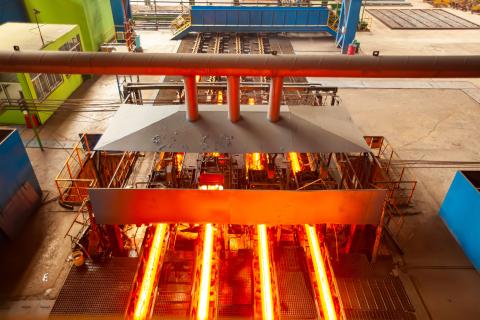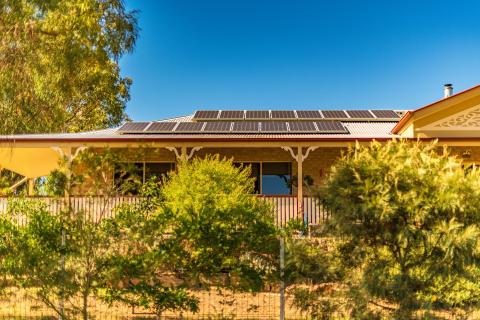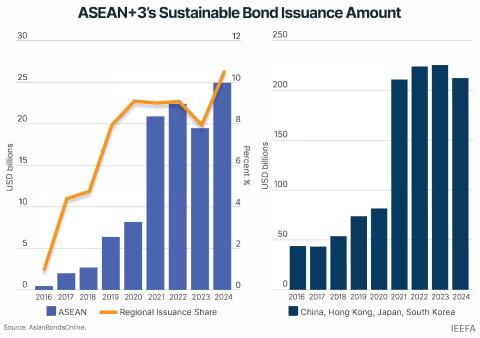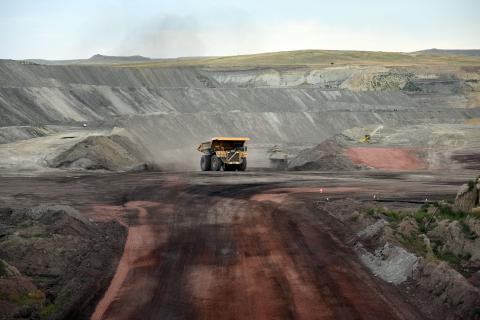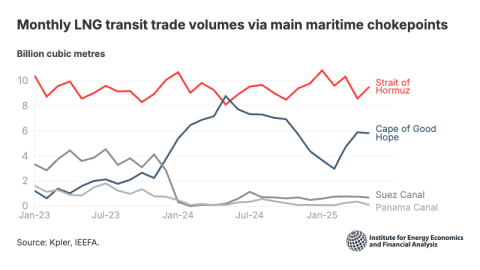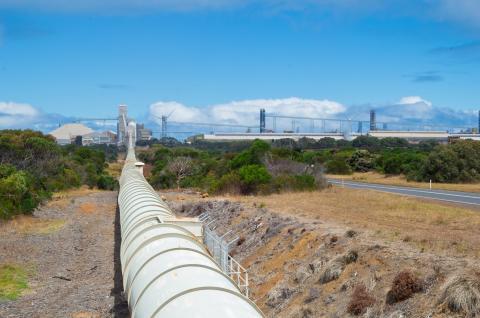IEEFA update: There is no such thing as clean coal, Mr. Fink
The world’s largest investment firm BlackRock made headlines in January 2020 with an announcement suggesting it was finally retreating from investment in thermal coal.
The financial exit away from thermal coal is close to becoming a stampede
Kudos given where kudos is due.
This was an albeit late but excellent series of steps to move towards an alignment with the Paris Agreement by the world’s most powerful financial institution that manages more money than the third biggest economy in the world (US$7 trillion in assets under management).
Thermal coal burning has long been recognised as the largest and most emissions intensive mankind-related contributor to global warming. The International Energy Agency (IEA) has long forecast the terminal decline in unabated thermal coal if we are to limit global temperature rises to 1.5 degrees C.
The World Bank and a number of Nordic institutions were early movers away from the polluting fossil fuel way back in 2013. Today, the number of globally significant financial institutions – with more than US$10 billion of total assets – announcing their exit from thermal coal financing, insurance and/or investment stands at 126.
“Hopefully by now we all now know that “clean coal” is as real as healthy cigarettes”.
The financial exit away from thermal coal is close to becoming a stampede, with an exit or two announced each week in 2020 alone.
BlackRock, although late to the table, finally read the tea leaves and is also starting to exit, announcing its divestment of $521m in thermal coal shares from its actively managed portfolios because it continues to be “a bad investment”.
They are also stepping up pressure on companies not actively working towards Paris climate targets, are doubling the number of sustainable exchange traded funds, and are accelerating their investment renewable energy solutions.
BlackRock has committed to the Climate Action 100+ – an investor initiative to ensure the world’s largest corporate greenhouse gas emitters take necessary action on climate change – and to quarterly disclosure of its proxy voting record. It has also now endorsed the Taskforce on Climate-related Financial Disclosures (TCFD) and the Sustainability Accounting Standards Board (SASB) for all its investments, enforceable by the end of 2020.
SO, IS THIS GREENWASH OR REALITY?
In a revealing interview with BlackRock Chairman and CEO Larry Fink published this week in Australia’s Financial Review, the definition of coal came into question.
Fink told the journalist “We have to be realistic”.
“What we need to be doing as capitalists who believe in environmentalism, we need to find ways of making coal cleaner because we’re not going to see countries running away from coal anytime soon.”
He went on to say:
“BlackRock is not going to be an investor in thermal coal but we’re going to be an investor hopefully in technologies that make thermal coal less polluting.”
This is a classic case of one small step forward, one step backwards.
Such banking on hope suggests BlackRock has not learnt from their past shareholder wealth destruction
Energy analyst and well known Australian businessman Simon Holmes à Court said just today, “Hopefully by now we all now know that “clean coal” is as real as healthy cigarettes”.
Well apparently, Larry Fink doesn’t know this and is still betting on a fossil fuel future.
Already the largest money manager, there are no indications that BlackRock intends to stop growing.
That it will attempt to do this with investment in pursuit of entirely unproven ‘clean’ coal technology is very disappointing.
IEEFA analyst Melissa Brown describes the issue clearly:
‘“Clean” coal simply does not exist. “Clean” coal describes a hope that new emissions abatement or carbon capture and sequestration (CCS) technology might one day solve the coal problem. To date both technologies have proven uneconomic and unsuccessful in reducing emissions.’
There is no substantive investment in research, development and deployment of CCS at commercial scale deployment in the coal power sector, simply because the last three projects undertaken have proven entirely commercially unviable.
FINK IS TRYING TO FIND LEVERAGE IN NEW TECHNOLOGIES THAT ARE UNLIKELY TO EVER SUCCEED.
Such banking on hope suggests BlackRock has not learnt from their past shareholder wealth destruction in the energy sector.
Larry Fink appears not to have learnt this lesson, yet.
As IEEFA noted recently, the firm’s failure to effectively address risk lost its’ investors over US$90 billion in value destruction and opportunity cost from just a select few holdings over the past decade.
In Australia this week, Fink is apparently already in “conversations” on the “key issue” of finding new technologies to clean up coal.
This is a losing game, as Fink is ignoring a clear fact – the economics of coal simply do not add up anymore.
The 80% collapse in Peabody Energy shares in the last year alone is a stark reminder of how quickly thermal coal mining companies can destroy shareholder wealth.
This is no decade long transition, it’s a bloodbath of wealth destruction.
Larry Fink appears not to have learnt this lesson, yet.
Tim Buckley is director of energy finance studies, IEEFA Asia Pacific.
Related articles:
BlackRock to investors: sustainable portfolios provide stronger risk-adjusted returns
BlackRock decision on climate change‒it’s about business
BlackRock takes first step towards aligning US$7 trillion fund with Paris Agreement
BlackRock’s fossil fuel investments wipe US$90 billion in massive investor value destruction



